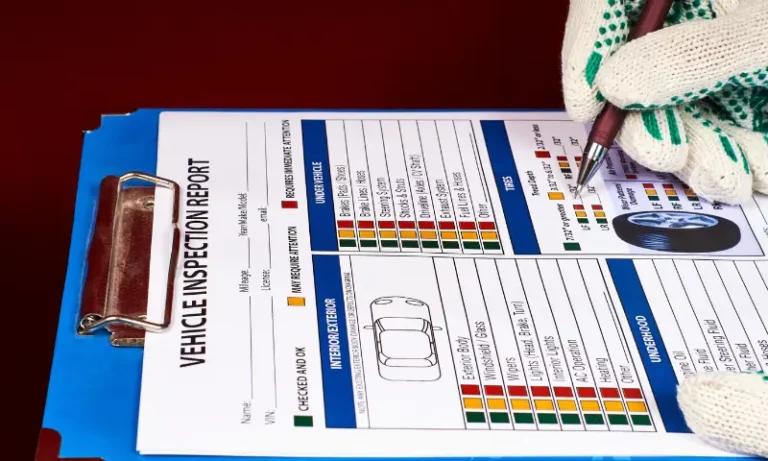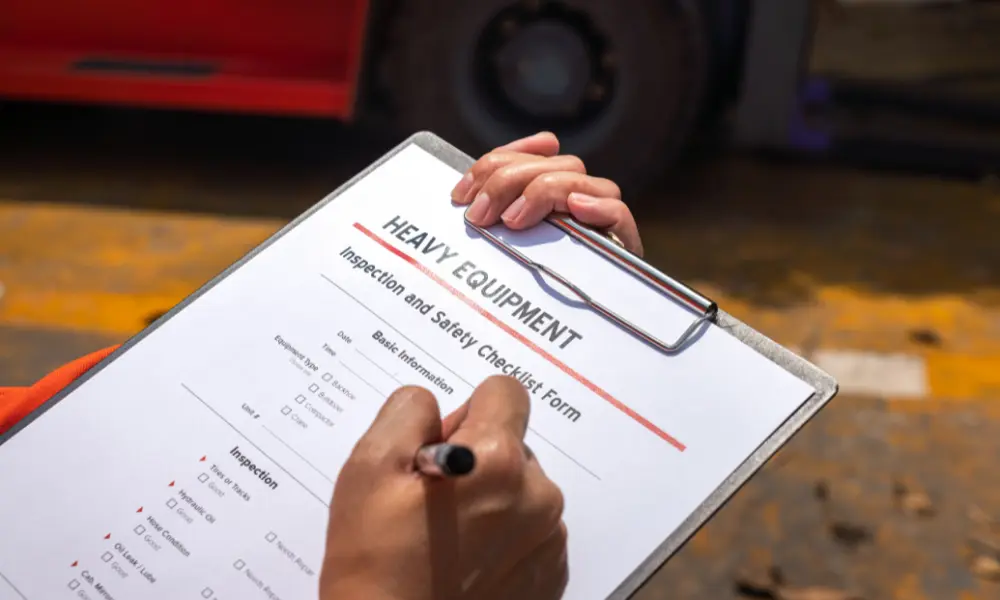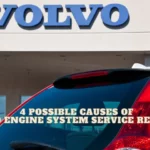Keeping your vehicle in compliance with Texas safety standards is essential for every resident. To do so, you’ll need to pass an annual inspection. This process involves a comprehensive safety evaluation, and for some vehicles, an additional emissions test is required. Ensuring your vehicle meets these requirements is crucial for both your safety and that of others on the road.
Knowing what to expect during the inspection can help you prepare and increase the likelihood of your vehicle passing. By understanding Texas car inspection laws and their requirements, you can ensure your vehicle is in the best possible condition before heading to the inspection station.
Requirements for Vehicle Inspection in Texas
In Texas, ensuring motorists’ safety is a top priority. As a result, vehicles registered in the state are required to pass an annual inspection that includes a Safety Inspection and an Emissions Test, depending on the county you reside in.
Safety Inspection
During the safety inspection, a licensed inspector will check your vehicle’s safety features, such as seatbelts, wipers, mirrors, and tires. Below are some key components that will be assessed during the inspection:
- Brakes: Your vehicle’s braking system will be checked for proper functioning and responsiveness.
- Lights: Inspectors will verify that all exterior lights, such as headlights, brake lights, and turn signals, are functioning correctly.
- Tires: Your tires will be inspected for adequate tread depth and proper inflation.
- Steering and Suspension: Your vehicle’s steering and suspension components will be checked for any issues that may affect maneuverability or stability.
Remember to bring your current vehicle registration and proof of insurance with you to the inspection.
Emissions Test
Emissions testing is mandatory for vehicles registered in 17 Texas counties, including Harris County. The emissions test checks your vehicle’s exhaust system for harmful pollutants to ensure it complies with state guidelines.
For gasoline-powered vehicles, the test typically includes:
- On-Board Diagnostics (OBDII) Check: Inspectors will connect to your vehicle’s on-board computer to assess its emissions control systems.
- Acceleration Simulation Mode (ASM) Test: Vehicles older than 1995 without an OBDII system will undergo an ASM test that measures emissions while the car operates at various speeds.
Diesel-powered vehicles will have a different emissions testing, called Opacities Test, measuring particulate matter levels in the vehicle’s exhaust.
If your vehicle fails the emissions test, you’ll need to make the necessary repairs and retest within 15 days to maintain compliance with Texas regulations.
Inspection Process and Components
Inspection Station
When it’s time for your annual vehicle inspection in Texas, you’ll need to find an authorized inspection station. These stations are available in many cities, including Houston, Austin, and El Paso. Locate a station that best suits your needs, and ensure your vehicle meets all necessary requirements.
Headlights
Properly functioning headlights are essential for safe driving. During the inspection, your vehicle’s headlights will be checked for alignment, brightness, and that both low and high beams operate correctly. Make sure to replace any burnt-out bulbs before your inspection.
Mirrors
Mirrors play a crucial role in helping you maintain situational awareness while on the road. Your vehicle’s side and rear-view mirrors will be checked to ensure they are securely attached, free of cracks, and have proper visibility.
Windows
Windows and windshields on your vehicle must be free of any significant cracks, chips, or damage that could obstruct your view. Additionally, window tint must comply with Texas regulations, generally allowing a minimum of 25% light transmittance for front side windows and any percentage for rear side and rear windows.
Horn
Your vehicle’s horn is an essential safety feature to alert other drivers and pedestrians. The inspection technician will test your horn to ensure it functions correctly and produces a sound that meets the state’s minimum volume requirements.
Braking System
A properly functioning braking system is paramount for your safety on the road. During the inspection, the brake components, including brake pads, brake lines, and the brake master cylinder, will be examined for wear and functionality. Ensure there are no leaks and that the brakes are effective before your appointment.
Tires
Your tires are critical in maintaining control and safety while driving. The technician will inspect your vehicle’s tires for tread depth, proper inflation, and any signs of damage that could result in dangerous road conditions. Verify that your tires are in good condition and meet Texas state requirements.
Exhaust System
The exhaust system helps control your vehicle’s emissions. During the Texas vehicle inspection, the technician will ensure that your car’s exhaust system is functioning correctly, free of leaks, and meets the 17 Texas counties’ emissions standards, including Harris County.
Gas Cap
Your vehicle’s gas cap should have a tight seal; otherwise, it can contribute to increased emissions. The inspection technician will examine the gas cap for proper fit and condition. Make sure it’s secure and free of any damage before your inspection.
Remember to address any issues with your vehicle before the inspection to ensure a smooth process and avoid potential rejections. Regular maintenance will make this process more manageable and help contribute to safer roads in Texas.
Special Vehicle Categories
In Texas, there are specific requirements and guidelines for different categories of vehicles. Let’s dig into the details for commercial vehicles, motorcycles, and noncommercial vehicles.
Commercial Vehicles
For your commercial vehicle to pass inspection in Texas, it needs to adhere to strict safety standards. Some of the crucial components that will be inspected include:
- Brakes
- Steering Mechanism
- Lighting devices and reflectors
- Tires
- Wheels and rims
- Horn
- Windshield wipers
Additionally, your vehicle must meet emissions testing standards if it is a gasoline-powered vehicle that is 2 to 24 years old. Diesel-powered vehicles and motorcycles are exempt from emissions testing but still require a safety inspection.
Motorcycles
Motorcycles must also pass an annual safety inspection in Texas. Similar to commercial vehicles, some of the critical components inspected include:
- Lighting devices and reflectors
- Brakes
- Tires
- Wheels and rims
- Steering Mechanism
- Horn
Note that motorcycles are exempt from emissions testing. Additionally, you’ll need to present your ID and proof of insurance during the inspection process.
Noncommercial Vehicles
Noncommercial vehicles in Texas, such as passenger cars and trucks, also need to pass an annual safety inspection. The examination will cover components like steering, brakes, tires, mirrors, and lights, among others. Gasoline-powered vehicles 2 through 24 years old are subject to emissions testing, but diesel-powered vehicles are exempt. Just as with commercial vehicles and motorcycles, remember to bring your ID and proof of insurance for the inspection.
Registration and Inspection Fees
When registering your vehicle in Texas, you’ll need to pay the registration fees. These fees vary depending on your vehicle’s weight and type. However, before you can renew your vehicle registration, you must also get your vehicle inspected.
The vehicle inspection process in Texas includes a comprehensive safety inspection, and in some cases, an emissions test. The inspection fees also differ depending on the requirements for your vehicle. According to the Texas Department of Public Safety, the cost of inspection ranges from $7 to $40.
Here’s a quick overview of the fees you’ll encounter:
- Registration Fees: These fees are determined by the weight and type of vehicle. You can find the specific fees for your vehicle on the Texas Department of Motor Vehicles website.
- Safety Inspection Fees: Safety inspection fees vary by vehicle type. For example, cars and light trucks will have an inspection fee of roughly $7.00-$30.25, while trailers and motorcycles have inspection fees of approximately $7.00-$20.00.
- Emissions Test Fees: Only some Texas counties require emissions testing. If your vehicle must undergo an emissions test, it will typically cost an additional $11.50-$18.50.
Once your vehicle passes the inspection and you have paid the appropriate fees, you can renew your vehicle registration. Remember to keep track of your registration sticker, as it displays crucial information such as your license plate number, county of registration, and partial vehicle identification number.
With this information, you can make sure your vehicle is properly registered and inspected according to Texas requirements, keeping you on the road safely and legally.
Documentation and Insurance
Before heading to a vehicle inspection in Texas, it’s essential to gather all the necessary documentation and insurance. This will help ensure a smooth process and improve your chances of meeting the requirements set by the Texas Department of Public Safety.
First and foremost, remember to bring a valid photo ID, such as your driver’s license. If you are new to Texas, you’ll need to obtain a Texas driver’s license from the Texas Department of Motor Vehicles within 30 days of moving to the state.
Next, you should have your vehicle registration ready. Texas requires state-registered vehicles to have up-to-date registration for the inspection process. If you are a new resident or have recently purchased a car, ensure your vehicle registration is completed with the Texas Department of Motor Vehicles.
Additionally, having the proper insurance is crucial. Texas law mandates that all drivers have minimum liability insurance coverage on their vehicles. To meet this requirement, you must show proof of insurance, which can be your insurance card or an electronic version via your smartphone.
During the vehicle inspection, you may also be asked for the Vehicle Inspection Report (VIR) issued by the inspection station upon your car’s previous examination. If this is your first inspection or you’re new to Texas, don’t worry; the inspection station will provide you with a VIR after completing your vehicle’s evaluation.
In summary, ensure that you have a valid photo ID, up-to-date vehicle registration, proof of minimum liability insurance, and your Vehicle Inspection Report before heading to any Texas vehicle inspection station. These documents will help you meet the requirements set by the Texas Department of Public Safety and keep you on the road legally.
House Bill 3297 and Its Implications
You might be interested to learn about House Bill 3297, authored by State Rep. Cody Harris, and its implications on vehicle inspection requirements in Texas. This bill, if signed by Governor Abbott, will eliminate mandatory vehicle safety inspections for noncommercial vehicles in the state.
For Texans, this change could mean less hassle when it comes to maintaining your registered vehicle. Instead of needing to pass regular vehicle inspections, you would only need to pay a one-time fee of $16.75 during the vehicle’s registration process. This change is expected to save you both time and money.
However, you should still be mindful of road safety. Even though HB 3297 aims to do away with outdated vehicle inspection mandates, it’s essential to ensure your vehicle adheres to safety standards. Remember, keeping your car in a safe and well-maintained condition is not just necessary for passing inspections; it’s crucial for your protection on the road.
Another aspect to consider is that the bill would not eliminate emissions inspections entirely. If you live in one of Texas’ most populated counties, you will still need to pass an annual emissions test. This is to ensure your vehicle meets environmental standards and contributes to cleaner air for everyone.















